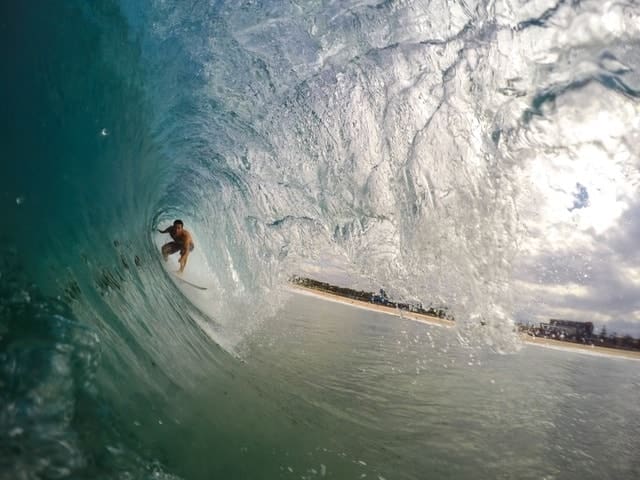Surfing is enjoyed by people all over the world. The prospect of riding the waves on a perfect summer day is enough to get almost anybody in the mood to grab a board and swim for the breakers. It’s never too late to learn how to surf so if you live near the ocean, there should be nothing to stop you.
If you are a beginner, however, there are a few things you need to know before you head out. There are right ways and wrong ways to surf, and doing things the wrong way can result in injury to yourself or others. If you are interested in surfing, visit HanaleiSurfSchool.com for more information. Until then, here are a few safety tips that will help you out when you first start.
Find the Right Board
Surfing is a tough sport even for people who have been doing it for awhile: you not only need comfortable concentration in order to control the board, you also need to be able to physically steer the board with your legs. If you have a board that is too big or too heavy for you in the beginning, you will have trouble riding the waves and may even injure yourself.
While you should look for a board that you like — after all, why hit the waves on an ugly board? — you should choose one with a soft top. Not only may these run a little cheaper than hard top boards, but they will give you an added amount of protection while you learn. In the beginning, there is a good chance that you will hit your head on the board at some point. The soft top will help minimize the possible damage and will help keep you from getting frustrated from hurting yourself.
Get Fit
Surfing is a strenuous activity that requires a decent amount of body strength and flexibility in order to get the full enjoyment out of the sport. Just paddling out over the waves can take a tremendous amount of energy that will leave you tired when you’re finally ready to catch a wave.
In the week leading up to finally getting out on the water, start an exercise regimen that focuses on cardiovascular health and core strength. Aerobic exercises like running and biking will help get your heart and lungs ready for the exertion of swimming, while strengthening your core will really help you cut the board once your riding so you can control yourself. Sit ups, crunches and even yoga can help strengthen your core.
Stay Away From Large Groups of People
While you should never surf without somebody else (at least, when you first start out), you should also try to avoid large groups of people. The reasoning for this is simple: no matter how ready you think you are when you head out, you will have trouble controlling the board for a while. By avoiding large groups of swimmers and other surfers, you minimize the chances of collision.
This means that when your first start out, you will want to avoid the popular surfing spots in your area. This is where all of the good surfers will be and they will get frustrated with you running into them all of the time. Instead, look for a spot nearby that allows you to practice away from everyone else. You might not get the best waves, but you will get more chances at catches some, and, as a result, you will get better more quickly. As you gain more confidence, you can start moving closer to everyone else and enjoy the sport with others.
Learn How to Fall
The most dangerous situation in surfing comes when you fall off of your board: you can get hit in the head, you could land in a shallow, rocky area or you could hit the bottom hard, possible breaking bones. In the beginning, you are going to fall — that is a given — so you should know how to fall safely.
Never let yourself go into the water headfirst. Instead, try to flop off the board onto your side or back: this will prevent you from sinking too fast when you don’t know what’s beneath you. And when you resurface, cover your head with your hands and arms to protect yourself in case your board hits you.
Surfing is a fun, popular pastime that many people enjoy. If you want to learn, make sure you know how to do it safely.
Lily Turner was practically raised on the beach, and has been surfing for as long as she can remember. Now teaching her kids how to surf she is reminded of the practical safety measures which are 2nd nature to her but that she must pass on. Spurred on to share her knowledge with others, Lily shares her surfing tips around the web.
Image Source; Image Source; Image Source




